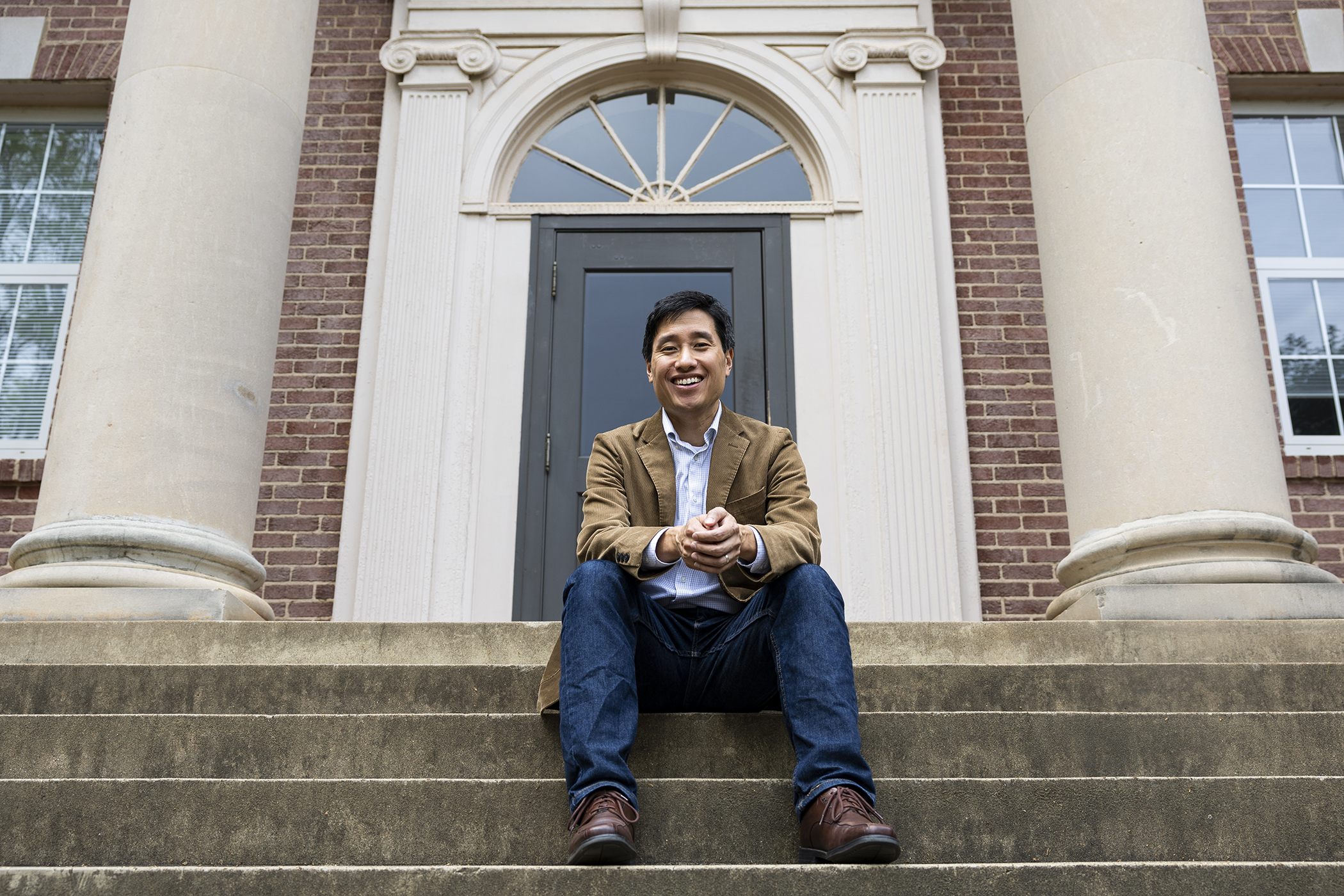In his fifth year at UGA, Timothy Yang teaches history to help students make sense of subjects that may first appear too foreign or complex to understand.
Trained as a historian of modern Japan, he teaches a broad range of courses about East Asia that emphasize connections and commonalities as well as global trends.
One example is his approach to teaching complex topics like the history of capitalism.
“Scholars commonly think capitalism developed differently in East Asia,” said Yang, associate professor in the Franklin College of Arts and Sciences’ history department. “A lot of this is tied to the extraordinarily rapid growth of Japan after the devastation of World War II. A nation that was basically reduced to rubble suddenly becomes the second largest economy in the world by the 1980s. Scholars attributed this success to a highly state-led form of capitalism with close-knit ties between state and industry. This became known as a developmental model for East Asia, which was also later used to explain the economic development of places like South Korea and Singapore and Taiwan.”
Yang’s teaching challenges this paradigm by presenting it as less unique to any single region and more a part of different global trends that included the arcs of Germany and Italy that with Japan formed a cohort of late-developing nations of the 20th century. While state-centered developmental industrialization in capitalist societies may seem counterintuitive to those who think of capitalism as free markets, Yang builds on these examples to invite deeper insights.
“One of my approaches to teaching East Asian history is to talk about how these societies are not so foreign. I try to find similarities and explain what may be unfamiliar through things that students are familiar with,” said Yang, interim director of the Center for Asian Studies who arrived at UGA in 2018 after his first job as an assistant professor at Pacific University outside of Portland, Oregon. “It’s so easy to focus on the differences, but in many ways the similarities allow us to access a better way of understanding the world. Often, the foreign is not so peculiar.”
His approach of emphasizing interrelated connections to broader phenomena also frames his 2021 book, “A Medicated Empire: The Pharmaceutical Industry and Modern Japan.” Winner of the 2022 Hagley Prize for the best book in business history, the work explores the history of Japan’s pharmaceutical industry in the early 20th century. Within the framework of the rise and fall of one firm, the book explores the production, circulation and distribution of a variety of medicines from opium-based narcotics to patent medicines to life-saving medicines like quinine.
“It’s a book that is specifically about one Japanese company that failed. Yet through this one case study, I try to reveal broader patterns about business, capitalism, medicine and science, which speaks to how the pharmaceutical industry developed globally in the 19th and 20th centuries,” Yang said. “For example, many drug companies relied on the state for financial, scientific and regulatory support and on colonial regimes for raw materials for their medicines. In a way, the book is really about the development of pharmaceutical industry outside of the research laboratory.”
Yang’s research has also found its way directly into the classroom. While revising the book, he created a course on the global history of drugs in which he introduces a variety of related subjects from regulation and the FDA to over-the-counter medicines and the problems of drug marketing and distribution. In a recent lecture to students in the Morehead Honors College, he framed these subjects with the question: What is the difference between an illicit drug and licit medicine?
“The simple answer is, not much,” Yang said. “The distinction often doesn’t come from the drugs themselves. Rather, it is really about how different societies regulate different medicines, what those regulations are and how societies view those medicines. These are based on what a society values and what the power structure is within a society. That’s really what determines the difference.”
As a sign of good intellectual health among the UGA student body, the course fills up every time it’s offered, and it even attracts non-majors from the Colleges of Public Health and Pharmacy.
“The thing with history is it’s relevant to everybody,” he said. “Everybody has a story. It’s contemporary, accessible, and the accessibility of history makes it so interesting.”


